Movie Review Library - C
|
Home
/ Latest Reviews / Review
Library |
Make sure you see the Latest Video Reviews page as well!
 |
Cabin Fever (2003) |
 |
Caché (Hidden) (France - 2005) |
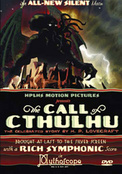 |
The Call of Cthulhu: The Celebrated Story by H.P. Lovecraft (2005) |
 |
Capote (2005) |
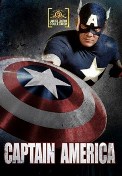 |
Captain America (1990) |
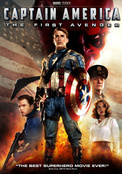
|
Captain America: The First Avenger (2011) |
 |
Carrie (1976) |
 |
Cars (2006) |
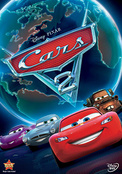
|
Cars 2 (2011) |
 |
*Classic* Casablanca (1942) |
 |
Casanova (2005) |
 |
Casino (1995) |
 |
Casino Royale (1967) |

|
Casino Royale (2006) |
 |
Casshern (Japan - 2004) |
 |
Cast Away (2000) |
 |
Catch a Fire (2006) |
 |
Catch Me If You Can (2002) |
 |
Cat People (1942) |
 |
The Cat Returns (Japan - 2002) |
 |
Cats & Dogs (2001) |
 |
Catwoman (2004) |
 |
The Caveman's Valentine (2001) |
 |
The Celebration (Denmark - 1998) |
 |
The Cell (2000) |
 |
Cellular (2004) |
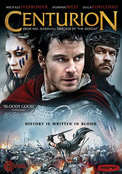 |
Centurion (2010) |
 |
Chak De! India (India - 2007) |

|
Changeling (2008) |
 |
Changing Lanes (2002) |
 |
Chaos and Desire (La Turbulence des Fluides) (Quebec - 2002) |
 |
Chariots of Fire (1981) |
|
|
Charlie and the Chocolate Factory (2005) |
 |
Charlie's Angels (2000) |
 |
Charlie's Angels 2: Full Throttle (2003) |

|
Charlie Wilson's War (2007) |
 |
Chasing Sleep (2001) |
|
Chicago (2002) |
 |
Chicken Little (2005) |
 |
Chicken Run (2000) |

|
Children of Men (2006) |
 |
China Strike Force (Hong Kong - 2000) |
 |
The China Syndrome (1979) |
 |
*Classic* Chinatown (1974) |
 |
A Chinese Ghost Story: The Tsui Hark Animation (Hong Kong - 1997) |
 |
Chinese Super Ninjas (Five Element Ninjas) (Hong Kong - 1982) |
 |
Chocolat (2000) |
 |
Chocolate (Thailand - 2008) |
 |
The Chorus (Les Choristes) (France - 2004) |
 |
Christine (1983) |

|
Disney's A Christmas Carol (2009) |
 |
Christmas in August (South Korea - 1998) |

|
The Chronicles of Narnia: The Lion, the Witch and the Wardrobe (2005) |

|
The Chronicles of Narnia: Prince Caspian (2008) |
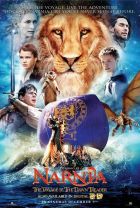
|
The Chronicles of Narnia: The Voyage of the Dawn Treader (2010) |
 |
The Chronicles of Riddick (2004) |
 |
Chunhyang (South Korea - 2001) |
 |
The Cider House Rules (1999) |
 |
Cinderella Man (2005) |
 |
Cinema Paradiso (1989) |
 |
Cinemania (2002) |
 |
*Classic* Citizen Kane (1941) |
 |
City
Hunter
(Hong Kong - 1992)
|
 |
City of Joy (1992) |
 |
City on Fire
(Hong Kong - 1987) |
 |
A Civil Action (1998) |
 |
The Claim (2000) |
 |
Clash of the Titans (1981) |
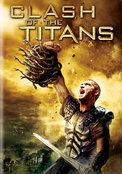 |
Clash of the Titans (2010) |
 |
Clear and Present Danger (1994) |
 |
Click (2006) |
 |
Cliffhanger (1993) |
 |
Close Encounters of the Third Kind (1977) |
 |
Closer (2004) |
|
The Closet (France - 2001) |
 |
Cloverfield (2008) |
 |
Coach Carter (2005) |
 |
Code 46 (2004) |
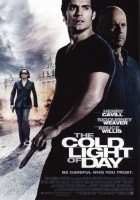
|
The Cold Light of Day (2012) |
 |
Cold Mountain (2003) |
 |
Collateral (2004) |
 |
Collateral Damage (2002) |
 |
The Color of Paradise
(Iran - 1999) |
 |
Colour of the Loyalty (Hong Kong - 2005) |
 |
*Classic*
Come Drink With Me (Hong Kong - 1967) |
|
Commando (1985) |
 |
Company (India - 2002) |
 |
Con Air (1997) |
 |
Conan the Barbarian (1982) |
 |
The Confessional (Le
Confessionnal) (Quebec -
1995) |
 |
Confessions of a Dangerous Mind
(2002) |
|
|
The Constant Gardener (2005) |
 |
Constantine (2005) |
 |
|
 |
The Contender (2000) |
 |
The Core (2003) |
 |
The Corpse Bride (2005) |
 |
Cowboy Bebop: The Movie
(Japan - 2001) |
 |
CQ (2001) |
 |
Cradle 2 the Grave (2003) |

|
Crank (2006) |
 |
Crash (2005) |
 |
C.R.A.Z.Y. (Quebec - 2006) |
 |
Crime Story
(Hong Kong - 1993) |
 |
The Crimson Rivers
(Les Rivières Pourpres) (2001) |
 |
Crimson Rivers 2: Angels of the Apocalypse (France - 2004) |
 |
Crouching Tiger, Hidden Dragon
(Taiwan - 2000) |
|
Croupier (1998) |
 |
The Crow (1994) |
 |
Crying Freeman (1995) |
|
The Cup (1999) |
 |
|
 |
Curious George (2006) |
 |
The Curse of the Jade Scorpion (2001) |
|
Home
/ Latest Reviews / Review
Library |

